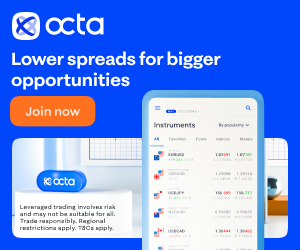BlackBull Markets Journal
| Journal status: live BlackBull Markets joined in | not yet |
BlackBull Markets Profile
Website
Year
2013
Country
Seychelles
Branches
4
Regulation
FSA Seychelles
Registration
FSA Seychelles, FSPR New Zealand
Investor protection
Fund protection
no
Publicly traded
no
Restricted in
Not serving
х Austria, Belgium, Bulgaria, Canada, Croatia, Cyprus, Czechia, Denmark, Estonia, Finland, France, Germany, Greece, Hungary, Ireland, Italy, Latvia, Lithuania, Luxembourg, Malta, Netherlands, New Zealand, Poland, Portugal, Romania, Slovakia, Slovenia, Spain, Sweden, UK, US
Broker type
STP, DMA, ECN pricing
Dealing book
A+B hybrid book, A-book
Tier
3
Execution speed
20 ms
LPs total
14
LPs quality
Tier-1 Banks
LPs names
ABN AMRO, ANZ, BNP Paribas, Bank of America, Barclays, Citibank, Commerzbank, Credit Suisse, Deutsche Bank, HSBC, JPMorgan, RBS, Standard Chartered, UBS
BlackBull Markets Accounts
STP
ECN
Minimum Deposit
1 $
2000 $
Leverage
500 : 1
500 : 1
Minimum Lot
0.01 lots
0.01 lots
EURUSD spread
0.8 pips
0.1 pips
Commission
0 $/lotRT
6 $/lotRT
Volume
100 lots
100 lots
Margin Call
70 %
70 %
Stop Out
50 %
50 %
Execution
Market
Market
Spread
floating
floating
Scalping
yes
yes
Deposit & Fees
Deposit methods
Bank Wire, Credit Card, Debit Card, Skrill, Neteller, HexoPay, Google Pay, Apple Pay, Bitcoin, Boleto, Beeteller, AstroPay, Tether
Base currency
USD
Segregated accounts
yes
Interest on margin
no
Inactivity fee
none
| Update broker |
- Full listing profile: BlackBull Markets broker profile
Is BlackBull Markets safe?
- Investor protection: no
- Regulation: FSA Seychelles
- Registration: FSA Seychelles, FSPR New Zealand
- Publicly traded: no
- Segregated account: yes
- Guaranteed Stop Loss: no
- Negative Balance Protection: no
Is BlackBull Markets trusted?
- Information transparency: sufficient
★★★ - Customer service: prompt, helpful
★★★★★ - BlackBull Markets website: highly detailed, updated
★★★★★ - BlackBull Markets popularity (by visitor count): average
★★★
How BlackBull Markets works
We are a No-Dealing Desk Broker (NDD), with Straight Through Processing (STP) all done on a true ECN.
https://blackbullmarkets.com/en/
We are a True ECN (Electronic Communication Network), bridging our clients directly to the markets without any internal dealing desks.
The proprietary aggregation system software is one of most effective cost saving measures we use to save you money on each trade. Essentially, the more diverse selection of liquidity providers we use, the lower the average spread for our clients and the speed and real time response of our ECN system allows for this.
The proprietary aggregation system software is one of most effective cost saving measures we use to save you money on each trade. Essentially, the more diverse selection of liquidity providers we use, the lower the average spread for our clients and the speed and real time response of our ECN system allows for this.
https://blackbullmarkets.com/en/trading/ecn-liquidity/
In order for BlackBull to offer the lowest spreads to our clients, we use a number of liquidity providers. To achieve this, major liquidity providers include the Bank of America, Goldman Sachs, Citibank, Barclays, RBS, Credit Suisse, Commerzbank, ABN AMRO and BNP Paribas.
Electronic Communication Network liquidity or ECN liquidity is integral to the service offered by BlackBull Markets. When combined with our aggregation system, our ECN ensures that our liquidity providers directly compete with each other to guarantee our clients the best trading experience.
Electronic Communication Network liquidity or ECN liquidity is integral to the service offered by BlackBull Markets. When combined with our aggregation system, our ECN ensures that our liquidity providers directly compete with each other to guarantee our clients the best trading experience.
https://blackbullmarkets.com/en/support/trading-conditions/who-are-your-liquidity-providers/
When you place a trade, it is processed by the cheapest current liquidity provider we have in our system during that instance, to make sure you get the best possible price available.
We consider this statement to be paramount. As such, we deliver clients the ultimate trading advantage, offering:
Proprietary aggregation software
Institutional level spreads
Deep-pool liquidity
Depth of Market
Lowest possible latency
We consider this statement to be paramount. As such, we deliver clients the ultimate trading advantage, offering:
Proprietary aggregation software
Institutional level spreads
Deep-pool liquidity
Depth of Market
Lowest possible latency
https://blackbullmarkets.com/en/trading/infrastructure/
Our exchange prices are determined by taking the best bid and ask price spreads being offered across our multiple liquidity providers and quoting them in real-time for our clients.
https://blackbullmarkets.com/en/support/trading-conditions/where-do-your-forex-prices-come-from/
The Client understands and acknowledges that the Company will enter into Transactions with the Client either as principal (counterparty) or an agent. The Company will be the contractual counterparty to the Client.
The Company’s Buy/Sell prices for a given CFD are calculated by reference to the price of the relevant Underlying Asset. Thirdparty reputable external resources (i.e. feed providers) obtain prices (Buy/Sell prices) of the Underlying Asset for a given CFD. The Company then uses the prices given by the feed providers to calculate their own tradable prices for a given CFD. The Company adjusts the Spread (i.e. the difference between the Buy/Sell prices), hence the prices it quotes to Clients compared to the prices it obtains from third party external reference sources may differ, as they include a Spread adjustment. The Company provides Quotes by considering the Underlying Asset price. The Client acknowledges that such Quotes will be set by the Company at its absolute discretion.
The Company’s Buy/Sell prices for a given CFD are calculated by reference to the price of the relevant Underlying Asset. Thirdparty reputable external resources (i.e. feed providers) obtain prices (Buy/Sell prices) of the Underlying Asset for a given CFD. The Company then uses the prices given by the feed providers to calculate their own tradable prices for a given CFD. The Company adjusts the Spread (i.e. the difference between the Buy/Sell prices), hence the prices it quotes to Clients compared to the prices it obtains from third party external reference sources may differ, as they include a Spread adjustment. The Company provides Quotes by considering the Underlying Asset price. The Client acknowledges that such Quotes will be set by the Company at its absolute discretion.
https://blackbullmarkets.com/wp-content/uploads/2020/07/Client-Services-Agreement-Final-200603.pdf
Comments
Add new comment...










